Everyone knows just how important a car's exhaust system is. So when the scent of something like paint thinner starts spewing from it, then it's a sign that there's something wrong. We asked professional car experts what could be wrong in this scenario and have answers to share.
The most likely cause of the smell of paint thinner from the exhaust is a faulty oxygen sensor. While there are several other reasons, chances are high that the problem is the oxygen sensor, especially if loud noises are coming from the engine. You should take your car to an automobile shop to resolve the issue.
In this article, we will discuss the topic in more detail and explain how to know whether or not there's an issue with your oxygen sensor. We will also tackle different foul smells that could come from your car's exhaust. So keep on reading.
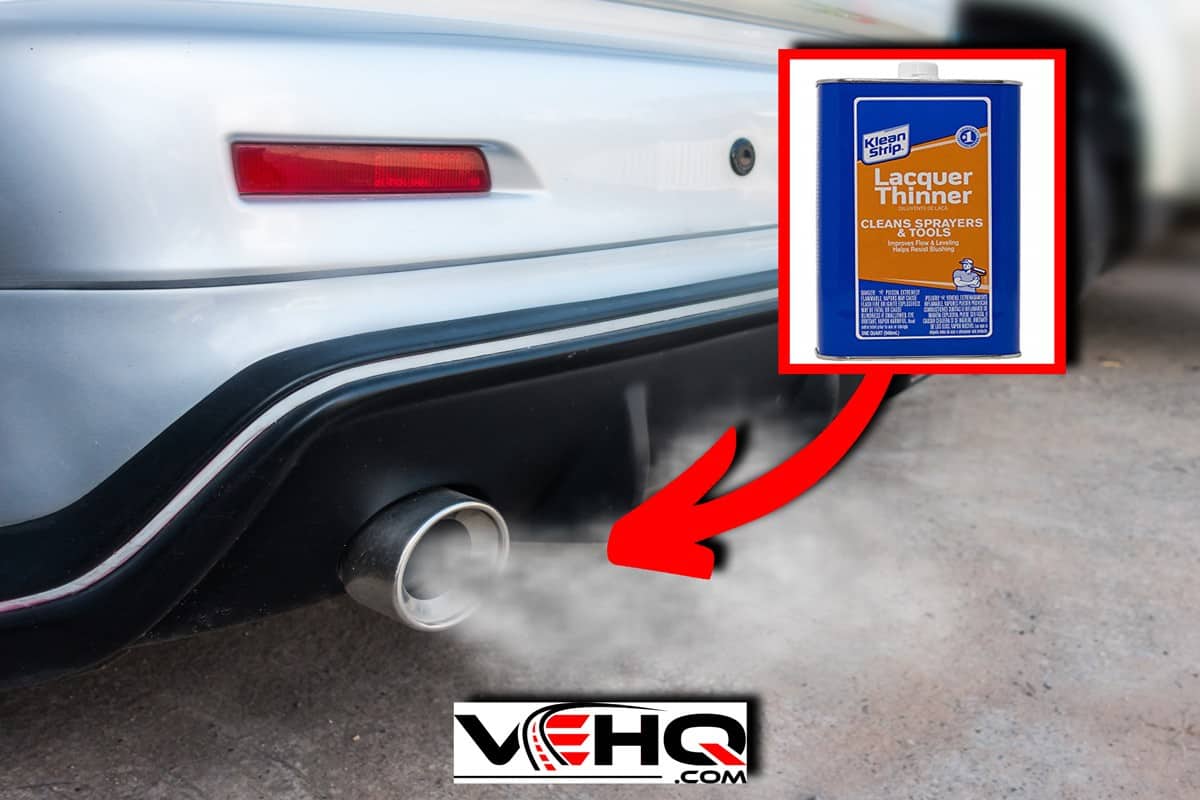
Why Does Car Exhaust Smell Like Paint Thinner?
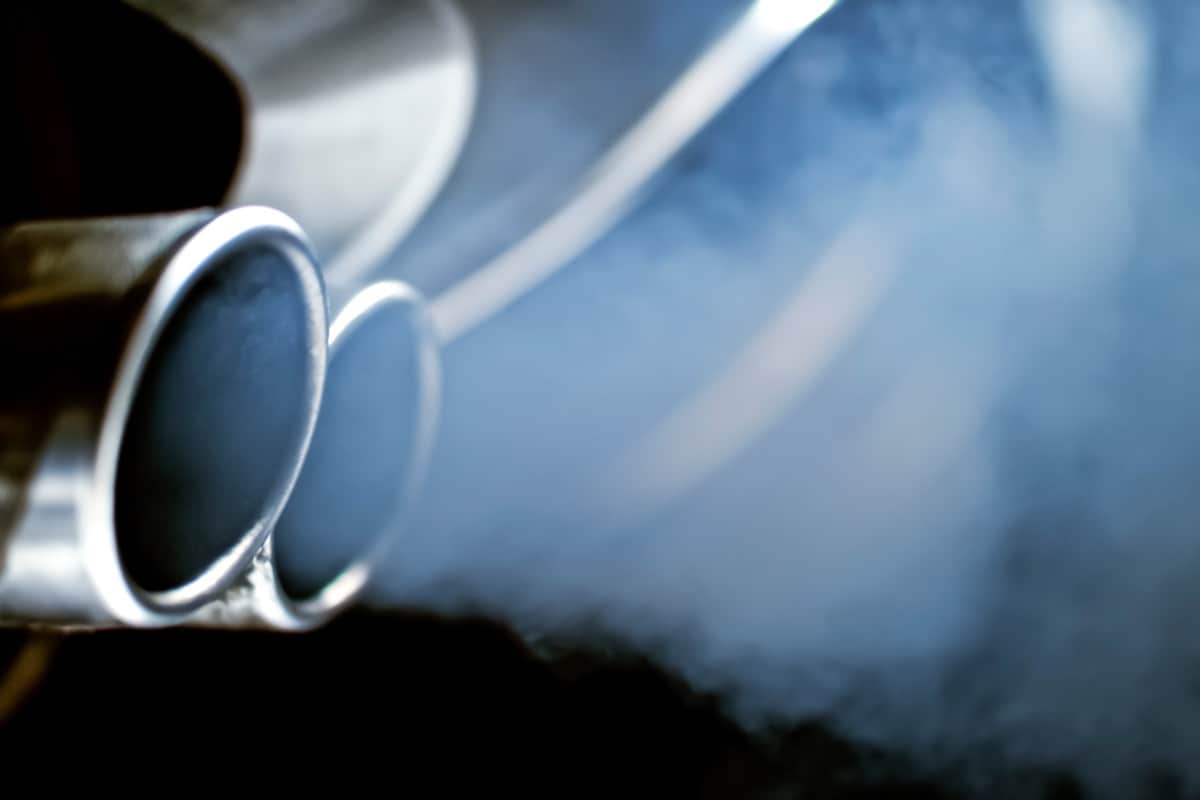
As stated earlier, you could smell the scent of paint thinner from the exhaust pipe due to a faulty oxygen sensor. The reason is that the oxygen sensor's primary role is to regulate the air and fuel mixture. In short, it's responsible for achieving equilibrium inside the car engine.
Disturbing this balance can lead to unburnt fuel, causing leaks to form in some cases. As a result, the scent of paint thinner becomes prominent each time you fire up your car.
However, we also mentioned that there are other reasons you're smelling the scent of paint thinner from the exhaust pipe.
A broken catalytic converter or a leaky engine can cause the same paint thinner-like smell to occur as well. Both cases, however, are not as common compared to a faulty oxygen sensor.
How To Spot A Faulty Oxygen Sensor?
As you already know, the smell of paint thinner is a dead giveaway. However, it might not be obvious to you since the smell only comes out when your car runs. It might even give you the impression that the smell comes from outside, not from your car's exhaust.
An easy way to tell whether or not there's something wrong is to check your car's dashboard. If you see the engine light illuminating, you know something is wrong. You should take your vehicle to an automobile shop when that signal lights up.
How Much To Repair A Faulty Oxygen Sensor?
Generally, it would cost you somewhere around $200 if you take your car to an automobile shop to repair it. However, depending on your car's model, the price would fluctuate greatly.
If the oxygen sensor needs replacing, you're looking at $20 to $140 in additional cost. In rare cases, the cost could be higher. It all depends on your car's model.
Check this oxygen sensor on Amazon.
What Happens If I'm Exposed To Paint Thinner Smell For Too Long?
Prolonged exposure to such fumes could lead to serious with your respiratory health.
You might experience shortness of breath, light dizziness, mild headaches, and occasional confusion and hallucination. The fumes can also harm your eyes and skin, causing them to feel irritated.
Worse, it can lead to severe allergies and can cause you to develop respiratory illnesses. This could lead to fatal accidents and even death.
Does Paint Thinner Smell Go Away?
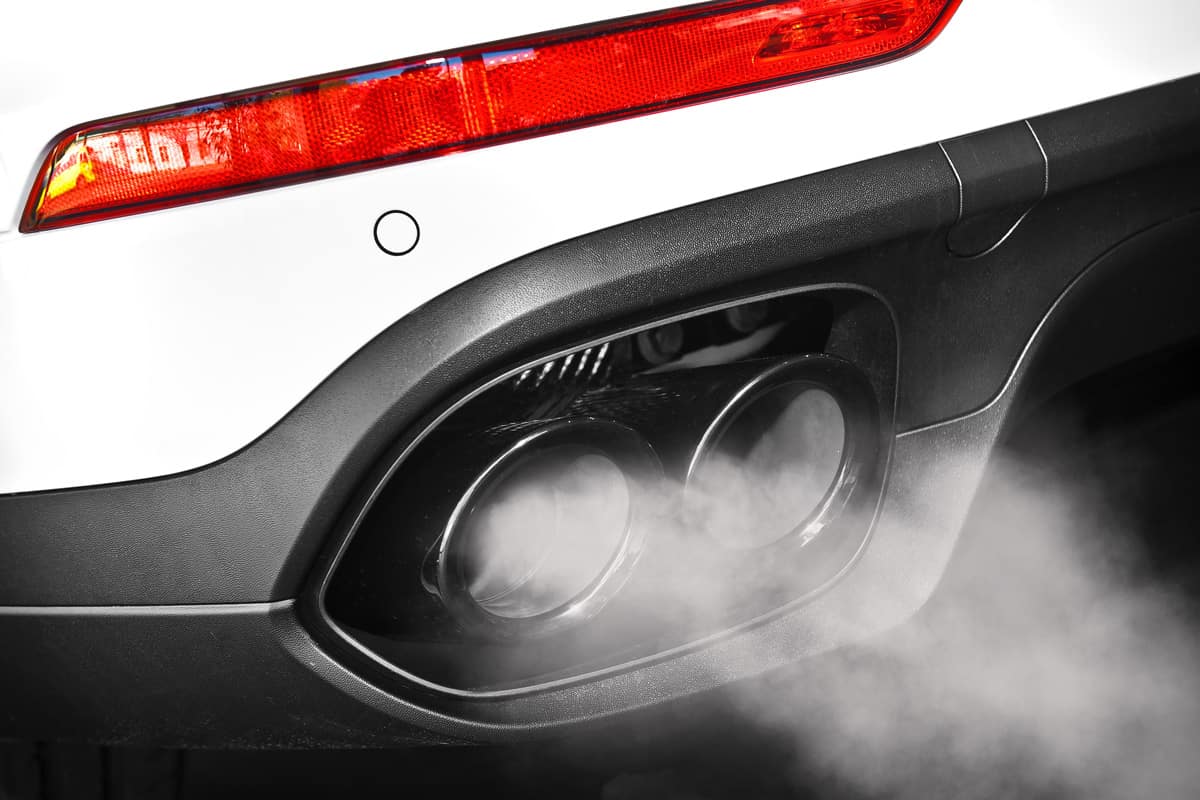
The smell will typically go away after a few hours or so by airing it out. Just make sure to remove the carpets, seat coverings, and other car accessories that the paint thinner smell could cling to.
Additionally, you can drive your car around the block with all the windows open to help get rid of the smell faster. This allows all the trapped fumes inside your car to dissipate quicker. This method would take at least half an hour to eliminate the smell.
Are There Faster Ways To Get Rid Of The Smell?
If you don't feel like waiting for too long or don't like the idea of getting into your car and driving it around while it smells bad, there is no need to fret. There are other ways to eliminate the paint-thinner smell inside your car's cabin.
An aerosol spray is one of the best ways to eliminate the smell. This helps to immediately get rid of and cover the scent of paint thinner without too much hassle. Just be sure not to spray directly into the vents to avoid leaving wet patches behind.
Additionally, you can use an aerosol spray in conjunction with a vacuum cleaner. This way, you're able to remove the paint thinner smell faster while at the same time freshening up the scent of your car's cabin.
For stains caused by the exhaust smell inside the car cabin, use a mixture of water, detergent, and a little lemon or lime juice. Scrub the affected area with soap to achieve a better effect before using the homemade spray.
However, if you genuinely don't want the smell of paint thinner to become a problem again down the line, consider switching the fuel your car uses.
Opt for a more eco-friendly fuel like biodiesel instead of gas or plain diesel. This would help reduce the likelihood of your car smelling like paint thinner.
Additionally, if the smell of paint thinner clings to your clothes or on different parts of your body, use a mixture of water with baking soda. This helps get rid of the smell and chemicals that may be present.
Be sure to soak the affected area in the mix for at least half an hour before washing thoroughly.
Check this air freshener on Amazon.
Other Foul Exhaust Smells To Be Aware Of
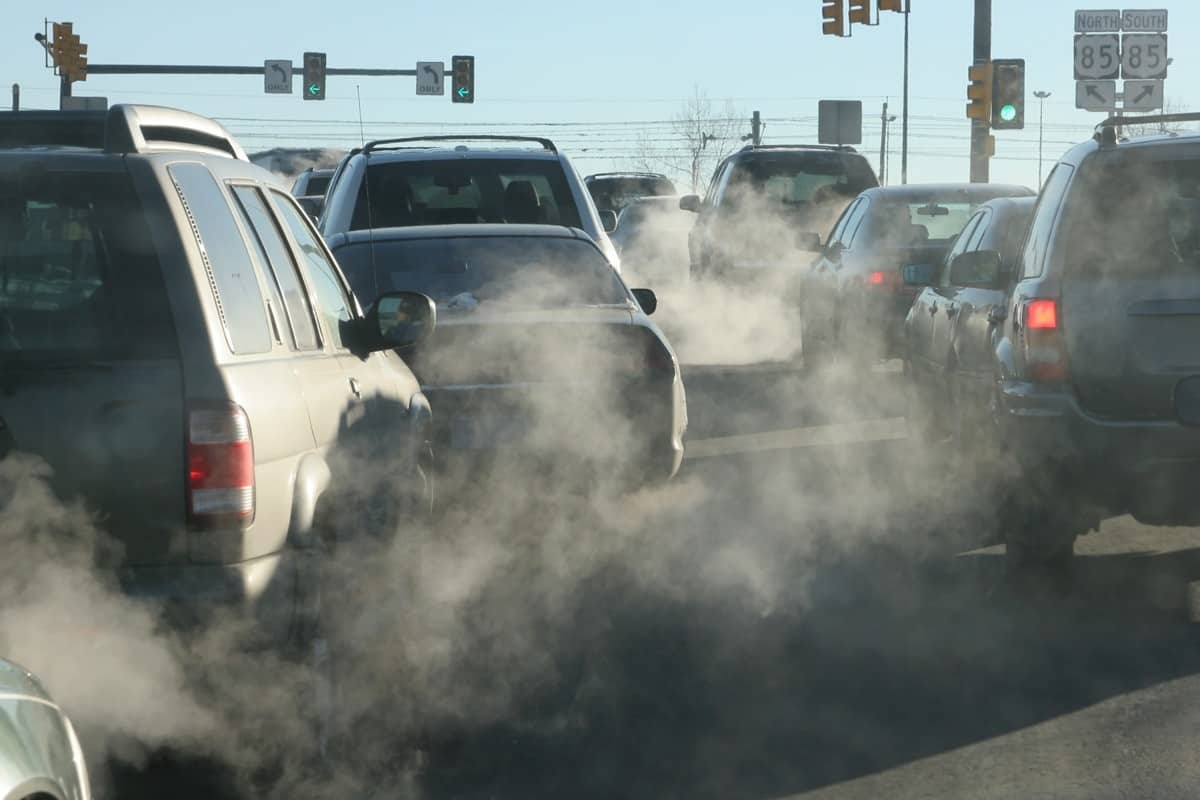
The smell of paint thinner coming from your car's exhaust isn't the only bad smell out there. This section will discuss what other foul smells your car's exhaust system can produce. Take note that these are just several examples and not all of them.
Spray Paint Smell
This is an extension of the paint thinner smell that comes from having a faulty oxygen sensor. In some cases, a fuel leak can occur, which produces a scent similar to spray paint.
The fuel drips onto the hot engine, causing it to catalyze into this foul odor. As mentioned earlier, when it comes to having a faulty oxygen sensor, it's best to take your car to an automobile shop to resolve such issues.
Sulfur Smell
This happens when your car's engine cannot burn off all the fuel properly. From there, hydrogen sulfide builds up, leaving behind a sulfur smell inside your car's cabin.
You can also recognize this smell as the scent of rotten eggs. When this happens, get out of your car and immediately call a professional for assistance.
Bleach Smell
When you leave your car running for too long, the smell of something acidic like vinegar can arise. This happens because the tailpipe gets exteemely hot, causing it to leak chemicals like coolant, and burn it immediately due to the heat.
Make sure to take your car to a mechanic to check for leaks. Additionally, it's also good to have your coolant levels checked. Not having enough coolant can quickly cause the tailpipe to overheat.
Burning Plastic Smell
It's never a good idea to ignore foul smells from your car's exhaust, and the smell of plastic burning is one of them.
When out on the road, it's understandable that some debris could get inside your car's tailpipe. In some cases, pieces of flammable plastic can also find their way inside. So pull over and check your car's exhaust pipe when you smell the scent of burning plastic.
Final Thoughts
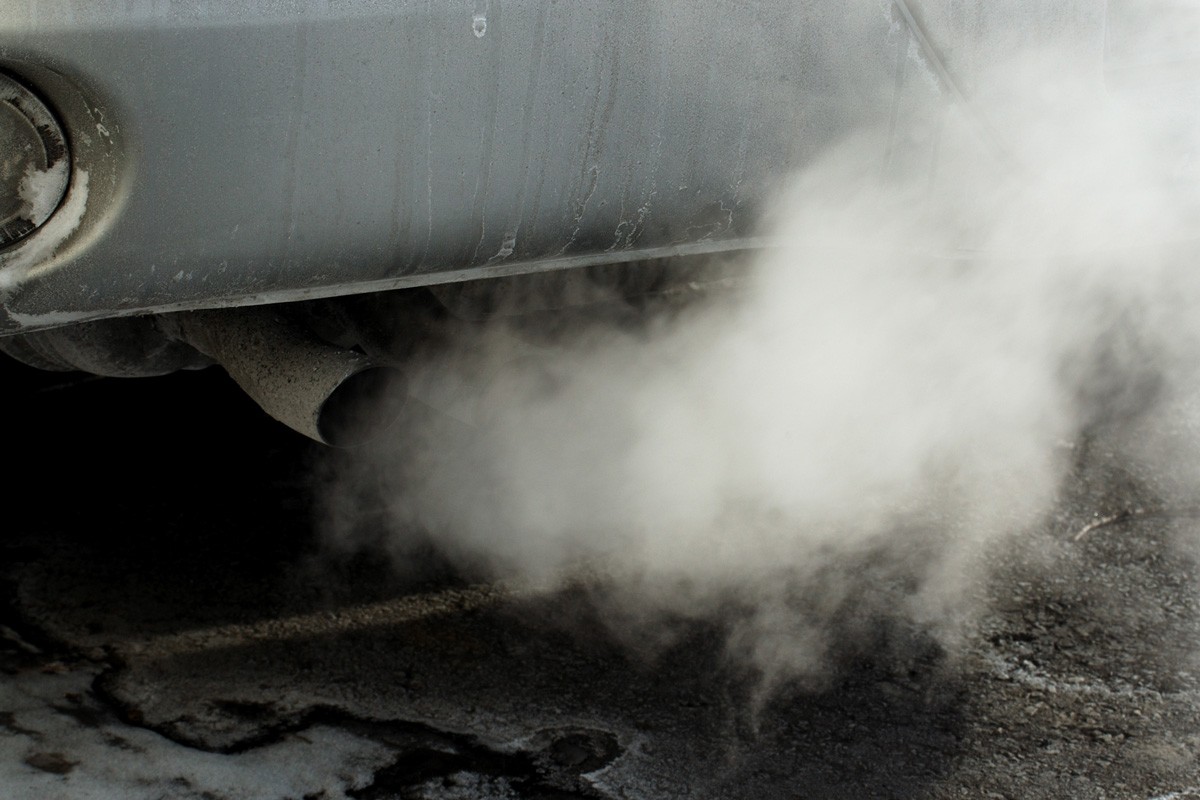
A faulty oxygen sensor is what's causing your exhaust to give off the smell of paint thinner. Although a handful of other reasons can cause this, those are far less common.
It's always best to take your car to an automobile shop when you notice the smell of paint to get any issues resolved.
If you found this article helpful, consider checking out the links below. They tackle other problems that exhausts are well-known for, including noise pollution.


